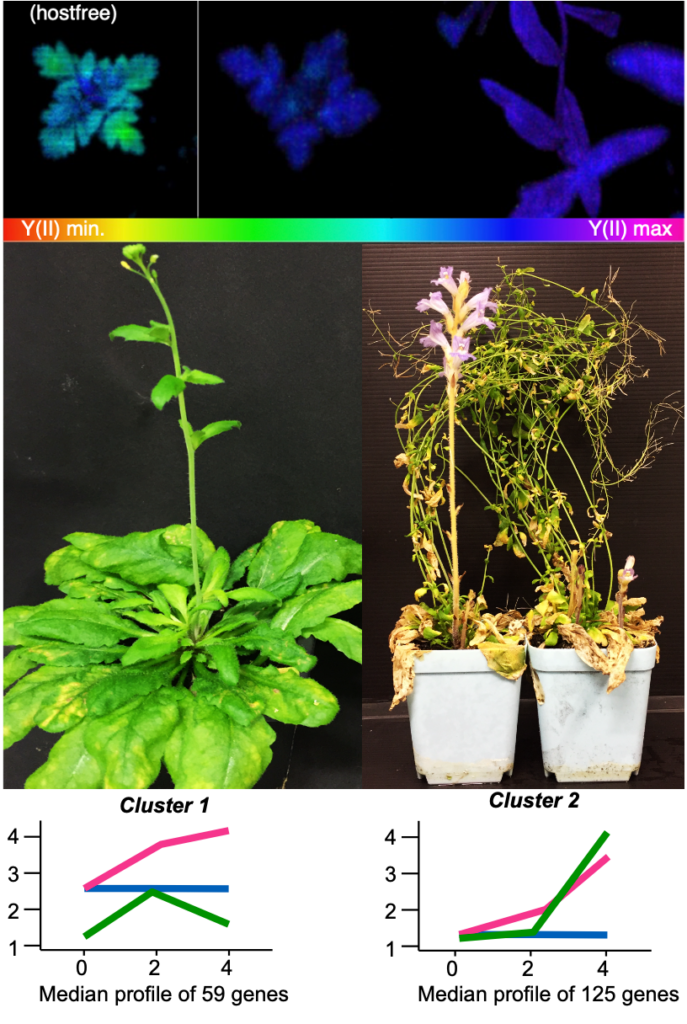
Acclimation kinetics of plant-plant-pathosystems
Plants perceive dual biotic:abiotic combinations of stressors as a new state of environmental challenge, whose molecular-evolutionary conservation remain unexplored. This research line investigates the role of molecular players of acclimation by studying the kinetics of plant-plant pathosystems under dual-challenge conditions. We aim to elucidate the evolution of environmental responses in parasitic plant-plant systems of diverse specialization, whereby the parasite serves as both the biotic stressor for its host, while also being the center of interest. We will i) compare the acclimation kinetics of plant-plant-pathosystems under adverse conditions, ii) analyze response patterns by post-transcriptional modification-sensitive sequencing and eco-physiological assays, and iii) evaluate the fitness of mutant lines. A subsequent synergistic analysis will fuse the differential responses in single- vs. dual-challenge situations on the transcript and post-transcriptional level with the physiological reaction. The novelty of this biotic:abiotic research line lies in its design with biotic stressors that are plants themselves, but live partly or completely of the resources of a host plant. As the pathogenic plants have deficiencies regarding plastid- and photosynthesis-based pathways, it is likely that this research will unveil responses independent from the canonical key functions of fully autotrophic plants towards the discovery of novel modulations in molecular acclimation processes of plants.